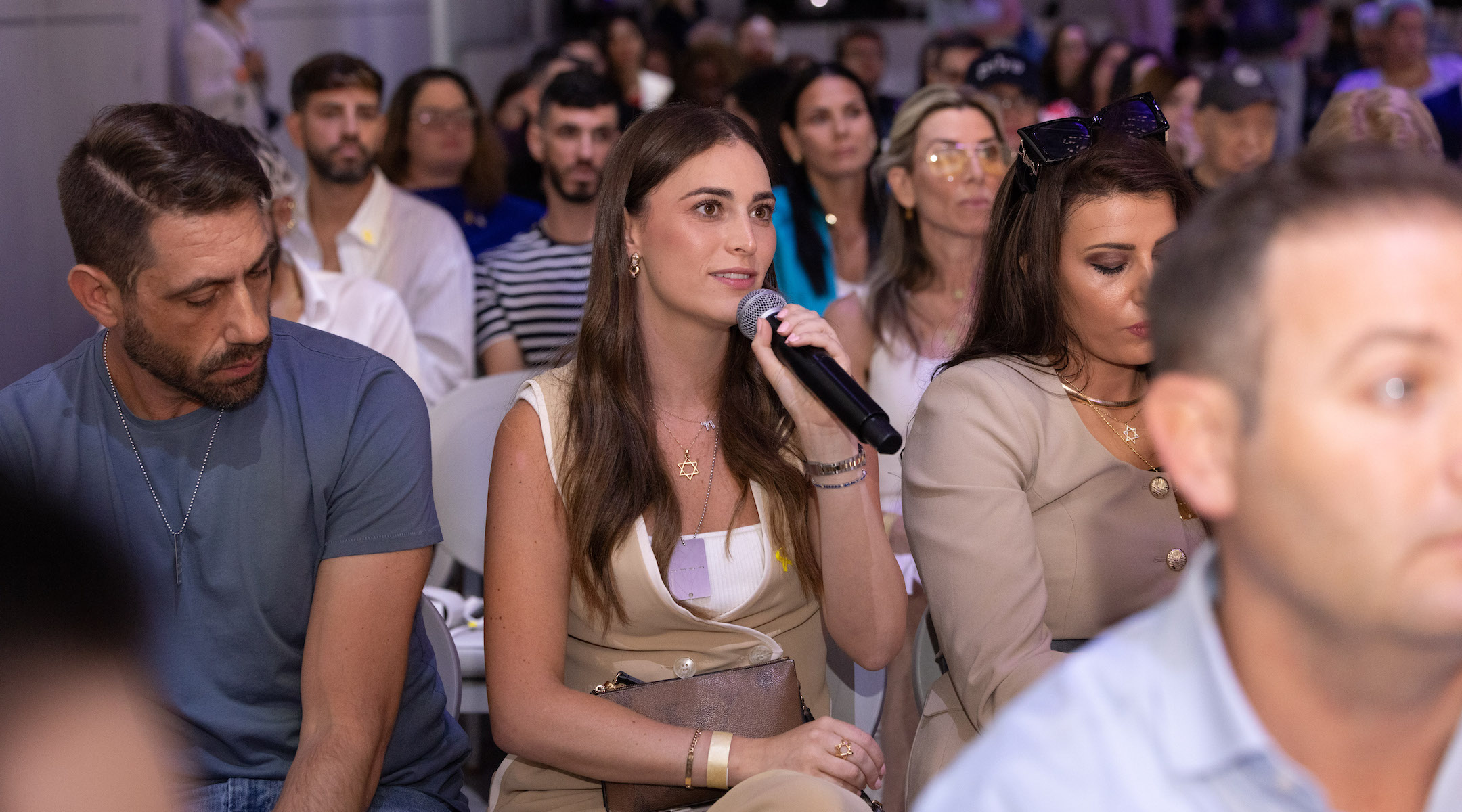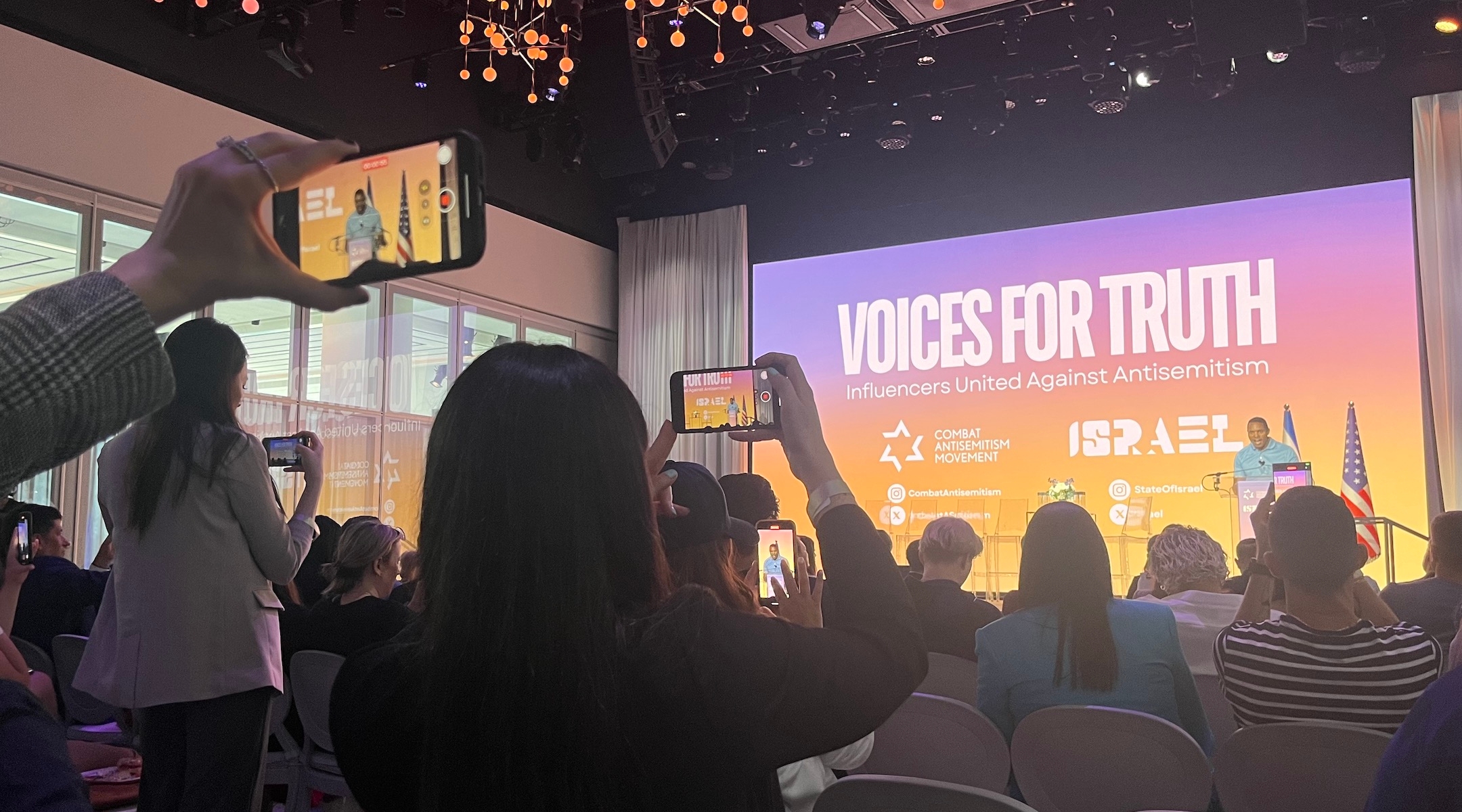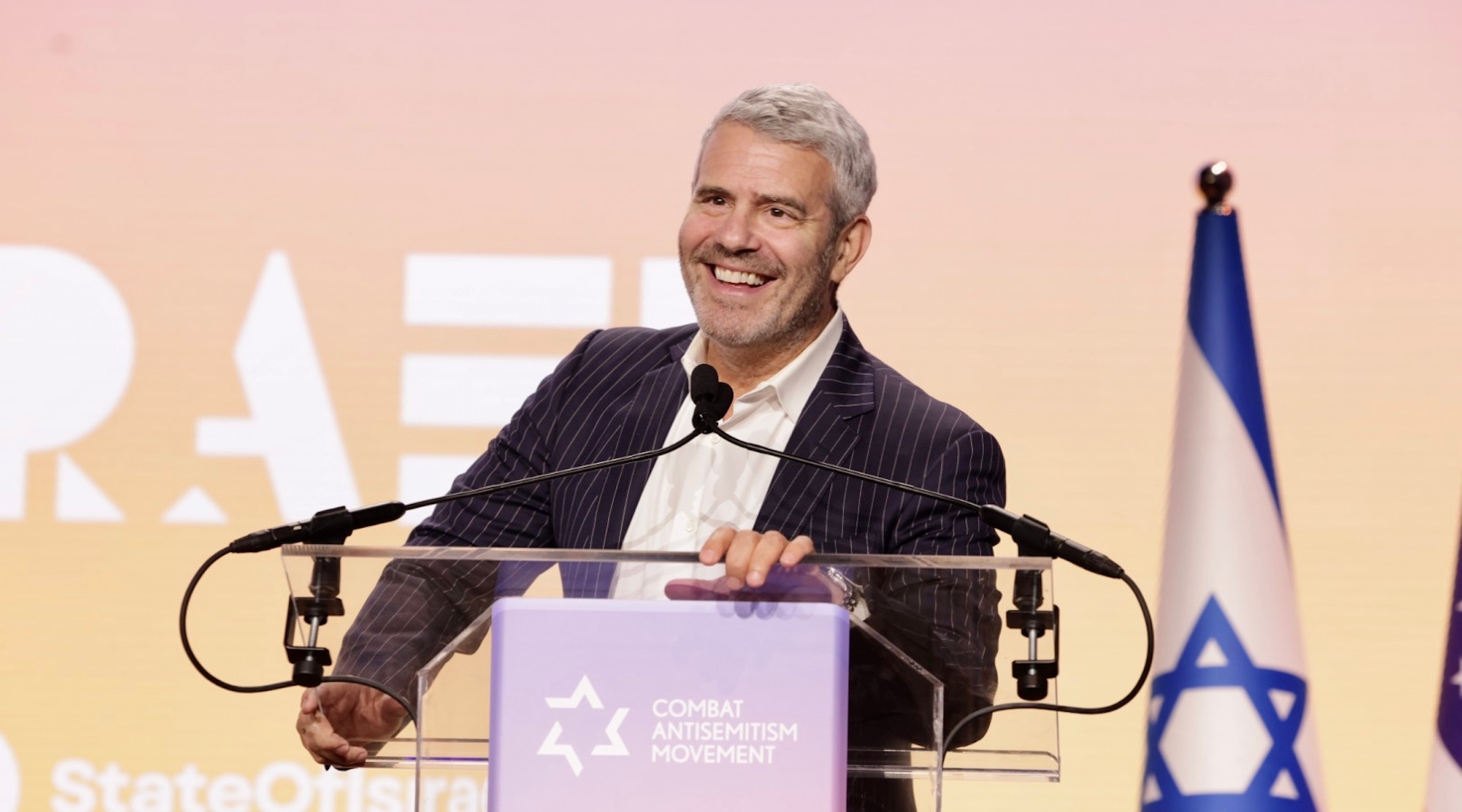When 27-year-old Adela Cojab visited Kfar Aza in November, barely a month after it was attacked by Hamas, she posted clips of her reactions of the experience on TikTok and Instagram — showing her in tears as she recalled seeing one of the community’s torched homes.
The video, unexpectedly for Cojab, garnered millions of views in the half hour after it went up — but many of the reactions were far from supportive. Cojab was spammed with people making fun of her, antisemitic comments referencing Hitler, photos of rats and other vitriol.
Not knowing what to do, she deleted the video and made her TikTok account private.
“I’d never had a video go viral like that,” she said. “It’s the first time I felt exposed and vulnerable in that way.”
A recent graduate of Cardozo School of Law, Cojab hadn’t planned on being an influencer. But after Oct. 7, she started posting more about Israel, Zionism and antisemitism. She wasn’t a stranger to speaking up about Judaism — in 2018, she sued New York University for discrimination, claiming a Title VI violation — but broadcasting her feelings and opinions like this online was a brand new experience, with little in the way of an instruction manual.
“No one helps you,” she said of posting and curating viral content. She just wrote her posts organically — something she said was common among her Jewish peers online.
“After October 7, Jewish creators or anti-antisemitism creators, or whatever you want to call us, started posting more — we really were screaming into a void. It was all accidental. It wasn’t like we said, ‘Let’s strategize on what to capitalize on.’ I just started posting and people started listening,” Cojab told the New York Jewish Week. “The hardest thing was feeling like we were on our own throughout that.”
But this week, Cojab — who still posts content on Instagram, where she has 42,000 followers — was able to network with hundreds of other online Jewish activists at a two-day summit called “Voices for Truth: Influencers United Against Antisemitism.”
Hosted by the Combat Antisemitism Movement and the Israeli Ministry of Foreign Affairs, the conference aimed to help Jewish content creators connect and hear from each other about why and how they’ve made their platforms more outwardly Jewish and in some cases, staunchly pro-Israel since Oct. 7 — and how to deal with the kind of online hate that Cojab experienced.
“This is the first event that I’ve gone to that is influencer-centered at this scale. It helps us feel like we’re not alone and helps us make sense of why we’re doing this,” Cojab said.

Adela Cojab, 27, graduated law school this year and posts content about Judaism and Israel to over 40,ooo followers on Instagram. (Nir Arieli and Ohad Kab)
More than 300 online activists and influencers attended the conference in New York, which was held at The Glasshouse event space in Hell’s Kitchen. The event brought together content creators with millions of followers combined — a group of both Jews and non-Jews from across diverse industries including politics, food, journalism, law, acting and music.
Andy Cohen, the executive producer of “The Real Housewives” franchise and the host of “Watch What Happens Live!” on Bravo, was a keynote speaker at the conference’s opening gala and hosted his own panel called “Shaping the Discourse.”
Cohen advised creators to commit to showing their Judaism in a public and positive way. He has used Yiddish phrases, popularized the word “Mazal” and hosted Rabbi Sharon Kleinbaum — his rabbi at the LGBTQ-focused Congregation Beit Simchat Torah in Chelsea — on the show.
“For me, flying the flag of who I am culturally is the greatest thing that I think I can do right now,” he said. “Continuing to celebrate what we love about being Jewish is actually more of a political statement than people realize.”
In December, he also lit a menorah on television with Real Housewife of Beverly Hills Dorti Kemsley.
“The simplicity of that act really resonated,” he said. “It was a way to make a statement about who we are and what we believe in without hitting people over the head or being overt, and that’s the main point I want to drive across here tonight: Be proud of being Jewish, and don’t shy away from showing it publicly. Sometimes the simplest displays or gestures are the strongest and most effective.”
Other speakers at the conference included NYC Mayor Eric Adams, Rep. Ritchie Torres and Israeli Consul General Ofir Akunis. Celebrities included the musician Matisyahu and Julia Haart of “My Unorthodox Life,” as did Holocaust survivors including Tova Friedman, who posts about her story on TikTok.

Rep. Ritchie Torres addresses the summit for “Influencers United Against Antisemitism.” Julia Gergely)
The topics of the panels ranged from “Refuting Misconceptions About Israel and the Gaza War” to “Shaping the Discourse” and “Navigating the Science of Social Media to Maximize Impact.” But organizers acknowledged that shifting discourse online can be an uphill climb.
“We are losing the battle” online, Yigal Nisell, the chief operating officer of Combat Antisemitism Movement, told the New York Jewish Week. “There are so many more than us that are spreading lies and hate. But we should never give up. We can’t. We should stay together in strength. That’s the main message.”
Since Oct. 7, his organization has concentrated its efforts on describing Hamas’ attacks as a deadly manifestation of antisemitism. Because of that, part of their work now involves trying to reframe online conversations about Israel.
Nisell said the idea for the conference came about after CAM brought influencers Montana Tucker and Ariel Martin, who goes by Baby Ariel online, travelled to Israel to document the country’s experience after Oct. 7. The two have a combined following of more than 60 million across Instagram and TikTok,
“We saw the impact immediately,” Nisell told the New York Jewish Week. “Every post that they have done for Israel and against antisemitism has millions of views and shares and follows. We realized that there were so many others out there like them, but they don’t have us or another organization to support them.”
The conference organizers recruited attendees by DMing anyone who posts in support of Israel or against antisemitism, and who has more than 50,000 followers. But they stayed away from people who worked in “hasbara,” the Hebrew term for Israeli public diplomacy efforts. The goal, instead, was to attract influencers who have large numbers of non-Jewish followers, and who therefore may be able to reach people who don’t know much about Jews or Israel.
“We aren’t fooling ourselves,” said Nisell. “We know that we don’t have so many followers or supporters around the world. We wanted to reach out to those who are not our followers, people who are confused or hear something they don’t understand, but then can say “But I follow this woman or this man and I love them and what they just said makes sense. So I want to agree with that person.”
Cojab likewise doesn’t expect to shift popular opinion with her posts, or reach those who vehemently disagree with her. What she hopes she can do, she said, is help other Jews articulate their thoughts when they have their own discussions about Israel.
“I do it for other Jewish people,” she said. “I think that the important thing is not necessarily educating the masses. Not everyone is going to reach the masses. It’s giving people the right words and the right way to frame things.”
She added, “I really think the world changes through conversations. So I aim more to give tools to people to have those conversations.”
She said the gathering was valuable because she is “coming from the world of law, where I’m an advocate, not an activist.”
“Now suddenly I am an activist,” she said. “It’s a new world.”
The New York Jewish Week brings you the stories behind the headlines, keeping you connected to Jewish life in New York. Help sustain the reporting you trust by donating today.





